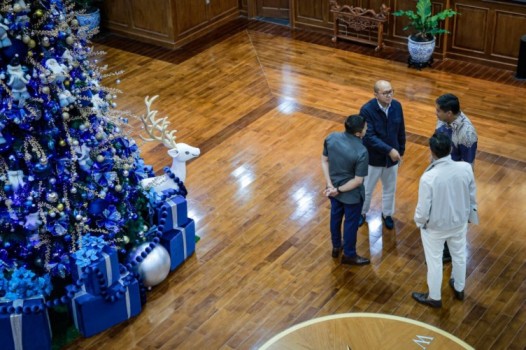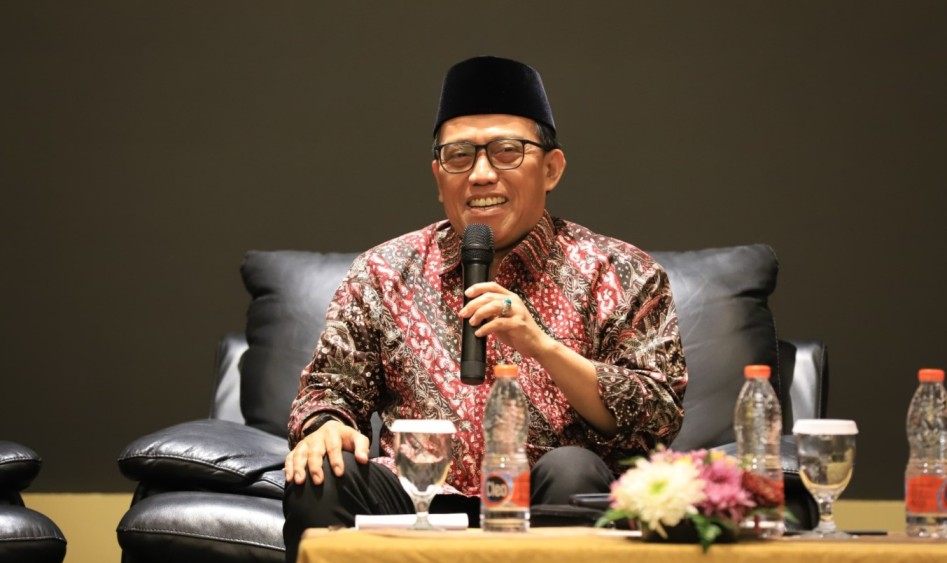News Focus – Halal certification becomes major concern; Indonesia’s Global Halal Center expects more SME products to have halal logo

Halal certification is a necessity, both for business players in the production chains and consumers who enjoy these products.
Bogor, W Java (Indonesia Window) – With a Muslim population reaching 240.8 million out of a total population of 270.20 million people, halal certification is a necessity, both for business players in the production chains and consumers who enjoy the products of the former.
“Halal certification has become a big concern in Indonesia because it is an obligation that should be carried out massively,” said Dr. Muslich, Halal Partnership & Audit Service Director of the Indonesian Muslim Ulema Institute’s Global Halal Center, at a discussion with the Indonesian Muslim Entrepreneurs Community (KPMI)’s Chapter of Bogor in West Java province on Monday (May 27).
He pointed out that there are four regulations on the obligation of halal products in Indonesia, that cover four main types of products, namely food and drink, raw materials or auxiliary/additional materials, slaughtered animals, as well as food and drink manufacturing services.
“For slaughtered animals, halal certification applies to slaughterhouses, including poultry slaughterhouses. Manufacturing services also include logistics services, retailers and stalls,” he explained, adding that halal certification must also be obtained by shops that sell various products for people’s daily needs.
Some large-scale retail stores in Indonesia still sell alcohol and non-halal products. However, he said, halal certification guarantees that other halal products are not contaminated by haram (forbidden by Islamic laws) materials.
Even though these four regulations have been imposed along with sanctions, Muslich said, the halal certification targets for products produced by Micro, Small and Medium Enterprises (MSMEs) is still very small.
“The Ministry of Cooperatives and SMEs still has 43 million MSEs operating in the food and beverage sector that must apply for halal certificates. Meanwhile, the deadline for halal certification is no later than October 17, 2024,” Muslich noted.
Therefore, he continued, Global Halal Center is ready to optimally assist SMEs so they could fulfill the regulations related to halal certification. “If products don’t have halal certification, they will be a sanction for the sellers not being allowed to sell, or they have to declare that the products they sell are not halal,” he said.

On the same occasion, the Business Club Director of KPMI’s Bogor Chapter, Kusnan bin Kundori, welcomed LPPOM MUI’s commitment to assisting SMEs in processing halal certification.
“Many business players, especially those in the small-scale sector, are not yet aware of the importance of halal certification, or do not understand how to get halal certification for their products,” he said.
Efforts to make understand and build awareness, he continued, are in accordance with one of KPMI’s pillars, namely that on education and literacy.
“We hope that KPMI as a forum for business players can work together with LPPOM MUI in helping SMEs obtain halal certification, in the hope that their businesses can continue to run, and even grow, because halal certificate can be an added value,” Kusnan said.

Regarding halal-certifed products, Global Halal Center’s Networking & Product Development Andriawan Subekti emphasized that products with halal logo would have a greater opportunity to be marketed globally.
In some countries halal certificates must be issued by accredited institutions that are recognized by export destination countries. LPPOM MUI has been established for 35 years, and has been accredited with ISO 17065, GSO 2055 (standards from the Gulf countries), UAE 2055 (the United Arab Emirates), and SMIIC (the Standards and Metrology Institute for Islamic Countries), he explained.
He added that Global Halal Center services are also supported by laboratories that have been accredited by Indonesia’s National Accreditation Committee (locally known as KAN) for the Indonesian National Standard (SNI) ISO/IEC 17025.
Therefore, he continued, halal certifications issued by LPPOM MUI also cover aspects of product quality and safety. “So that products that have halal label from LPPOM MUI are not only halal but also thayyib (good in Arabic) in accordance with Islamic law,” Bekti underscored.
“So far, LPPOM MUI has served more than 50,000 business actors spread across 65 countries, and we have also collaborated with more than 55 halal institutions throughout the world,” he said.
Even though LPPOM MUI is a reference for halal institutions in the world, halal certification in Indonesia still faces a number of challenges.
“Business actors are still not aware of the halal certification obligations and processes. To deal with this challenge, we offer seminars/webinars, intensive classes halal certification registration for business actors,” he explained.
Data from Indonesia’s Coordinating Ministry for Economic Affairs show that the number of halal certificate issuance by the National Halal Product Guarantee Organizing Agency (BPJPH) for all types of new products from 2019 to May 2024 is 4,418,343 products, from a target of 10,000,000 products. Thus, this figure has only reached 44.18 percent. In fact, the number of MSEs in Indonesia is recorded at around 28 million business units.
Therefore, Indonesian President Joko Widodo has decided to postpone the halal requirement deadline for food and beverage produced by MSMEs from 2024 to 2026.
Reporting by Indonesia Window

.jpg)








